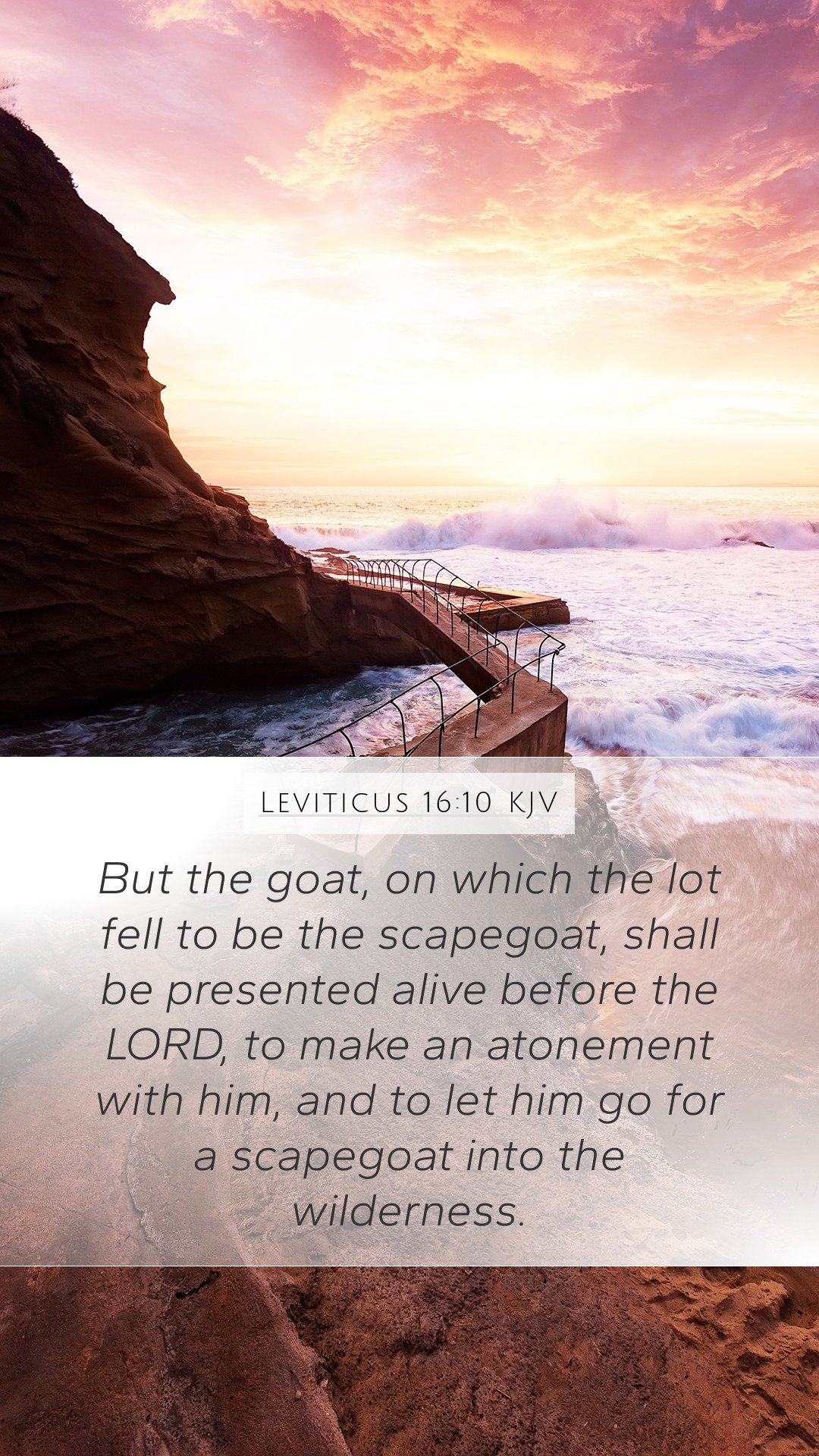Understanding Leviticus 16:10
Leviticus 16:10 states: "But the goat, on which the lot fell to be the scapegoat, shall be presented alive before the Lord, to make an atonement with him, and to let him go for a scapegoat into the wilderness."
This verse, part of the Day of Atonement ritual, provides profound insights into the themes of sin, atonement, and divine mercy.
Summary of Meaning
The meaning of this Bible verse revolves around several key components:
- Symbolism of the Scapegoat: The scapegoat represents the transfer of the community's sins and transgressions, signifying how God allows for the removal of guilt.
- Atonement Process: The ritual demonstrates the necessary steps for atonement between God and His people, highlighting the importance of sacrifice in approaching holiness.
- Divine Mercy: It illustrates God’s willingness to cleanse His people from sin, allowing them the opportunity for renewal and a fresh start.
Commentary Insights
This explanation merges insights from several esteemed public domain commentaries:
- Matthew Henry: Henry emphasizes the significance of the scapegoat as a profound symbol of Christ's eventual sacrifice and how the sins of the people are removed as far as the east is from the west.
- Albert Barnes: Barnes delves into the practical aspect of the ritual, noting that sending the scapegoat into the wilderness represented the complete removal of sin from the presence of God.
- Adam Clarke: Clarke discusses the unblemished nature of the scapegoat, which insinuated the purity required for atonement, foreshadowing the sinless nature of Christ.
Historical Context
In further Bible study insights, understanding the historical background of Leviticus is crucial:
- The rituals were established under Mosaic Law for the Israelites to maintain their covenant relationship with God.
- Leviticus outlines various offerings and sacrifices, exemplifying how pivotal these practices were in ancient Israelite worship.
Applications to Daily Life
As we reflect on the application of this Bible verse to our lives today, consider:
- Understanding Our Sins: Acknowledging our shortcomings is vital in seeking spiritual accountability and growth in faith.
- Seeking Atonement: It encourages believers to pursue sincere repentance and reliance on God's grace through Jesus Christ.
- Symbolism of Forgiveness: This verse reminds us of the grace available through Christ, who is the ultimate scapegoat, offering us salvation regardless of our past.
Cross References
To deepen our understanding, we can look at related verses:
- Isaiah 53:6: "All we like sheep have gone astray; we have turned, every one, to his own way; and the Lord has laid on him the iniquity of us all." This verse parallels the theme of sin bearing.
- Hebrews 13:11-12: "For the bodies of those animals, whose blood is brought into the sanctuary by the high priest for sin, are burned outside the camp." This reflects the continuation of sacrificial themes.
- Colossians 2:14: "Blotting out the handwriting of ordinances that was against us, which was contrary to us, and took it out of the way, nailing it to his cross." It speaks of Christ’s ultimate atonement and fulfillment of the law.
Conclusion
The verse Leviticus 16:10 is a cornerstone for understanding the concept of atonement and prepares believers for a deeper exploration of Christ's redemptive work. Engaging in Bible study groups can enhance your understanding, making it vital for discussions on the significance of these teachings in both ancient and modern contexts.
For anyone asking "What does Leviticus 16:10 mean?", this exploration provides the clarity needed to appreciate its richness and ongoing relevance in Scripture.


